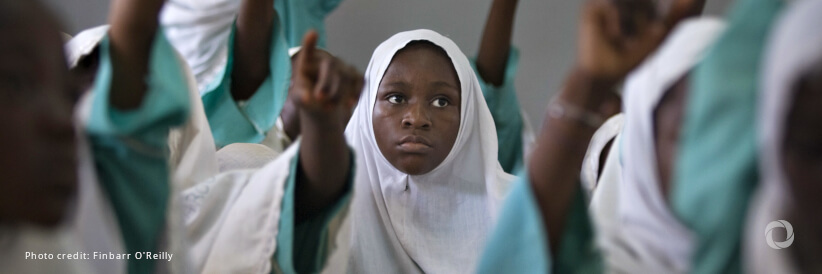As part of the World Bank’s deepened engagement in the Democratic Republic of Congo (DRC), the Board of Directors approved a $500 million Development Policy Operation (DPO) in support of critical economic governance reforms, together with a $400 million Girls’ Learning and Empowerment project that will strengthen the quality and access to secondary schools in DRC, with a special focus on keeping adolescent girls in school. Both projects are financed by the International Development Association (IDA).
The Foundational Economic Governance Reform operation, the second DPO in a series of two, supports the government’s reform program, addressing key governance challenges in public finance, market liberalization, and the management of the forestry and extractive industries—with the overall objective of accelerating green, resilient, and inclusive growth and development. As such, the engagement supports measures that will lead to increased transparency as a prerequisite for enhanced government accountability and capacity in sustainably managing DRC’s vast natural resources, including its forests, which represent a carbon sink of global importance.
“The approval in June 2022 of the first Development Policy Operation in DRC since 2005 represented a turning point in the relationship between DRC and the World Bank. The approval of this second operation is a recognition of the ambitious reform program implemented by the Congolese authorities despite a highly challenging environment,” said Albert Zeufack, World Bank Country Director for the Democratic Republic of Congo, Burundi, Angola, and Sao Tome and Principe. “Moving forward, the World Bank will maintain a strong focus on reform implementation to ensure that the expected results of these two operations are achieved and benefit the country’s 100 million people.”
Building on the adoption of long-awaited structural reforms supported under the first DPO, the second operation supports a deepening and broadening of reforms through the implementation of core treasury and accounting functions; strengthening of public procurement procedures; expansion of the digitalization process within the domestic revenue mobilization chain; implementation of the 2020 Telecom Law; the appointment of competitively selected leaders for the power and water utilities as well as the national road fund; strengthened oversight and transparency within the Mining Fund for Future Generations; approval of procedures for the sale/transfer of state-owned enterprise mining assets; and achievement of key milestones towards the completion of a review of current forest concessions.
The Girls’ Learning and Empowerment Project will establish the foundations for an effective secondary school learning environment and promote knowledge, skills, and behavior change needed to make teaching more effective and schools safe, inclusive, and free of sexual exploitation and abuse. The project will also provide sexual reproductive health and menstrual health management education in secondary school classrooms.
“In the context of the free primary education policy, implemented since 2019, this project offers an opportunity to achieve sustainable results in improving girls’ education at the secondary level in DRC. By supporting learning and girls’ empowerment in the country’s provinces with the lowest girls’ participation in secondary education, the project will help provide access to quality secondary education services for the most vulnerable population. These human capital investments will be critical for boosting growth and improving the welfare of the country,” said Hamoud Abdel Wedoud Kamil, World Bank Lead Education Specialist for the Democratic Republic of Congo.
The World Bank was among the first organizations to support the ambitious free primary education policy adopted and implemented by the Congolese government. As a result, more than 3.6 million additional students are enrolled in public primary schools in 2021-22 as compared to 2017-18. The World Bank’s new engagement in secondary education builds on existing large-scale support in the primary education sector and is aligned with the government’s objective of strengthening general, technical, and vocational secondary education.

